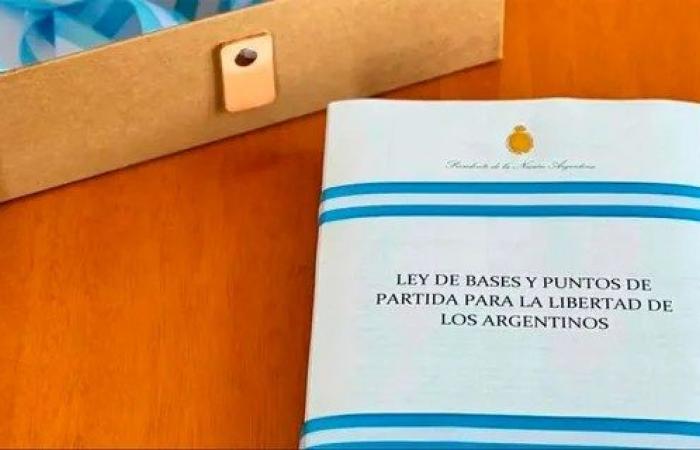(By Garret Edwards*).- The Bill of Bases and Starting Points for the Freedom of Argentines has already become, even before it has the chance to become law, an interesting case of analysis for the Constitutional right. Sometimes it is not easy to anticipate and realize that a fact will become the example of tomorrow’s textbooks. In other cases, it is pristinely visualized that this will be their destiny. The Base Law, regardless of what political path it continues on, has earned its fair place in future Constitutional Law manuals. And it has done so by virtue of the renewal, not only legal, but also social, of the debate on certain issues of the functioning of life in democracy that before, it seemed, were going unnoticed.
There was practically no talk of a presidential veto in Argentina since October 14, 2010 when Cristina Fernández de Kirchner, through National Decree No. 1,482, vetoed the 82% mobile rate for retirees. For those of us who are children of a certain generation, this is the most representative veto of all. The one that easily arises in the memory within a few seconds of thinking about an occasion in which the figure has been used. And yet, the bill – pushed by UxP and the UCR – that seeks to establish a new retirement mobility formula revived public discussion regarding the possibility of the Executive Branch vetoing a rule. And it is the Bases Law that takes this discussion to its climax by putting on the table the possibility of total or partial vetoes: Does President Milei, in what may displease him about the modifications that the Bases Law has undergone in its course, will he veto what he sees as not conducive to his political and economic plan? What parts, if any, of the Base Law are vetoable without modifying the entire scheme?
On the other hand, in the Senate, with the possible trip of Javier Milei involved, the question of the tie-breaking vote by the President of the Senate, Vice President Victoria Villarruel, was raised. The doctrine is not disputed regarding whether the vote in the event of a tie that falls to the person presiding over the session in the Senate runs both for whoever is the natural president (in this case, the vice president) and the provisional president (currently, the Senator Bartolomé Abdala), or only for the ex-officio president. Vice President Villarruel, in her speech to give her affirmative vote, argued in favor of those who want Argentina to change so that their children do not have to continue leaving the country, already occupies a privileged place next to the no positive vote of Vice President Julio Cobos at 04:25 in the morning on July 17, 2008. In addition to the above, Manuel García-Mansilla himself, already nominated to occupy a position in the Supreme Court of Justice of the Nation, has issued on some occasions in favor of the restrictive position, stating that the extension to the provisional president would be unconstitutional because it was given by a regulation contrary and of lower rank – the Senate Regulations – to the constitutional mandate. The debate, however, is open, and citizens join it.
The last point that deserves our attention and which, incredibly, is nothing more than a review of some elementary characteristics of our National Constitution after the constitutional reform of 1994, refers to the procedure that must be followed once a bill has been approved. for a camera but received modifications in the meantime. Here it is of interest to focus our gaze on the reformed article 81 of the National Constitution, which states the following: “If the project is subject to additions or corrections by the reviewing Chamber, the result of the vote must be indicated in order to establish whether such Additions or corrections were made by an absolute majority of those present or by two-thirds of those present.” In the Bases Law, the Chamber of origin was the Lower Chamber, that of Deputies; and the reviewing Chamber has been the Upper House, that of Senators. The procedural rules for the sanction and approval of post-1994 laws give importance to this distinction, since it must be taken into account with what majorities (simple or two-thirds majority) the reviewing Chamber has voted on the project in question. This is so that when it returns to the Chamber of origin, it can insist on the original version or submit to the modified one. There is no third possible option here: either we insist on what had already been voted on originally, or we admit what has been modified. A dam to prevent a legislative debate from becoming eternal.
All of this that is related in the preceding lines seems to be new, but all newness is nothing more than forgetfulness. These have long been the rules of operation of our democracy, some of them in force without modification since the dawn of our constitutional life in 1853, others with the reforms that the passage of time and best practices indicated. It is healthy that in Argentina we increasingly talk about Constitutional Law, that we increasingly worry about institutionality. As long as it is in good faith and with good intentions, and not a temporary excuse to color other intentions that were not good with a veneer of goodness and legitimacy.
*Infobae.






